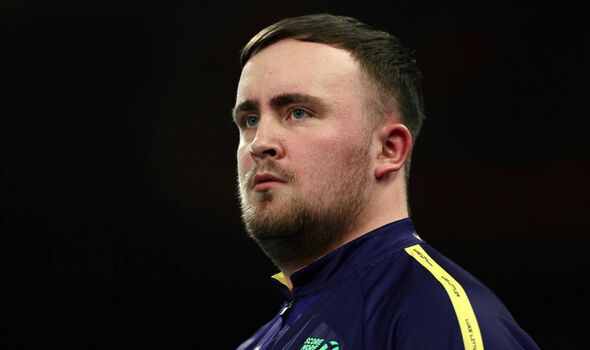
Shadow Foreign Minister: The UK Government must challenge Russia on LGBT …
February 6, 2014Deep in the Trough: The Politics of EU Corruption
February 6, 2014Road To Russia: Stockton biathlete ready for Sochi spectacular
7:00am Wednesday 5th February 2014 in Sport
By Scott Wilson
READY TO GO: Lee Jackson of Stockton will compete in the Winter Olympics on Saturday in the biathlon sprint
IN this country, it barely makes it on to the sporting radar. Mention the word “biathlon”, and most people will assume you’re talking about something involving swimming and running rather than the winter pursuit that twins skiing with rifle shooting.
But when Stockton’s Lee Jackson lines up in the biathlon sprint at the Winter Olympics on Saturday, he will be taking part in one of the most high-profile events of the Games.
Last year, more than 100,000 spectators watched Norwegian Emil Hegle Svendsen claim his fifth world title in the sprint event at the World Championships, and more than 20,000 fans are expected to attend this weekend’s Olympic competition in Sochi.
As Norway’s national sport, a biathlon medal in that country means more than any other. And as one of Norway’s leading winter sport rivals, hosts Russia are determined to ensure they are not bereft of success when it comes to a discipline regarded as one of the purest on the winter calendar.
It will be one of the biggest biathlon events in history, and Jackson, a former pupil at Grangefield School who had not even skied before turning 17, cannot wait to be a part of it.
“It’s going to be fantastic,” he said. “Over here, when people think about skiing, they tend to think of alpine skiing like you would see on Ski Sunday.
“But in most of Europe, skiing means cross-country skiing and biathlon because it’s a part of everyday life in the same way that jogging or running might be in Britain.
“It’s part of the culture in northern Europe. Kids learn to ski almost as soon as they can walk, and achieving success at cross-country or biathlon is like succeeding at football over here.
“It really is regarded as that important, and with these Olympics being in Russia, there’s a lot at stake for Russia, Norway and Germany, who have traditionally been the three biggest nations at Winter Olympics.
“I’m going to be competing in one of the events that is seen as the golden goose in Russia and it’s going to be a fantastic thing to be a part of.”
Jackson is no stranger to the Winter Olympics having made his debut in Vancouver four years ago, when he finished 55th in the sprint, 56th in the pursuit and 66th in the individual event.
The four years since have seen him steadily climb the world rankings, culminating in the 16th-placed finish at the start of last year that represents his best performance in a World Cup event.
He is targeting a top-30 finish in Sochi, a result that would potentially enable him to bow out of the sport on a high.
“Vancouver was all about simply being in the Olympics,” he said. “But I’ve been there and done that, and while I can’t wait to experience it all again, this time it’s more about performance and doing myself justice as well.
“I wouldn’t have carried on to Sochi if I wasn’t determined to go there and be the very best I can be. I can be a top-30 athlete if everything goes to plan and I hit my targets, and there’ll be a degree of disappointment if that doesn’t happen.”
“It’s part of the culture in northern Europe. Kids learn to ski almost as soon as they can walk, and achieving success at cross-country or biathlon is like succeeding at football over here” – Lee Jackson
A few weeks ago, it looked as though Sochi would definitely mark the end of Jackson’s biathlon career as a cut in Army funding looked like resulting in the end of the British biathlon programme.
However, external sponsorship means the sport will continue in its current guise for another four years, potentially enabling Jackson and fellow North-Easterner, Amanda Lightfoot, to continue competing right up to the Pyeongchang Olympics of 2018.
Jackson will be 38 at that stage though, and having taken up biathlon after joining the Green Howards at 16 before relocating to Italy in order to pursue a sporting career, this year could be the moment where he returns to the military ranks.
“It’s possible I’ll become an active soldier again,” said Jackson. “It depends how the military want to use me, whether they’d use me in a sport capacity or become a normal soldier again.
“I’ve been a full-time athlete since 2001. I joined the military aged 16 and my dream job was always to be an infantry soldier, but somehow I got into biathlon.
“I will be 34 just a few days after the Games, and biathlon is changing. At Turin in 2006, the average age was about 28 for a medal winner, but at Vancouver in 2010 it dropped quite significantly.
“I’ve been on a strange journey over the last eight years. It’s become more of a lifestyle. It’s not just a sport that I participate in, it’s a whole lifestyle, and changing that would be hard. But we’ll have to see what the future brings.”
Showbiz news
-
Savile was an oddball – Blackburn
-
Evans helps Radio 2 to new high
-
‘Money’ attracted Oldman to role
-
Taylor Swift: I don’t need nudity
-
Styles gets Kimye wedding invite?
-
No additive in Hoffman’s heroin



